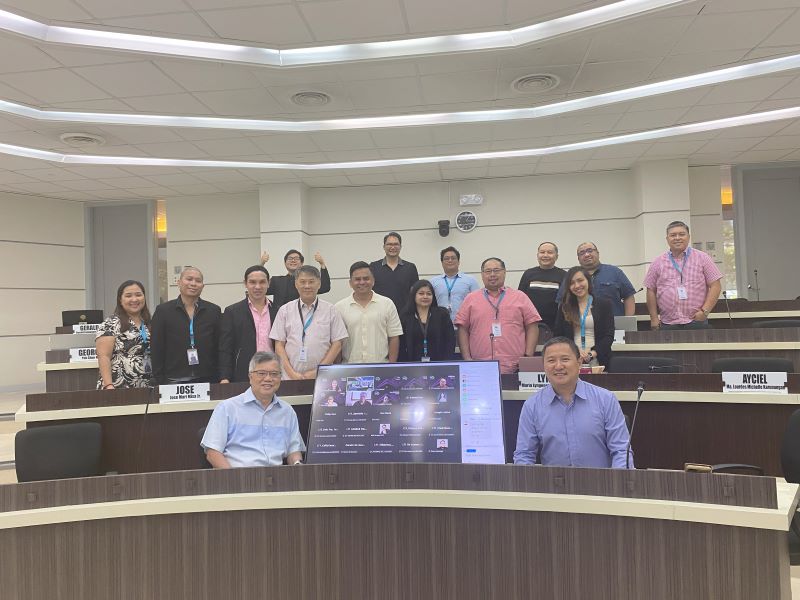
DICT Undersecretary, Jeffrey Dy with MCS Academic Program Director, Professor Philip Kwa and students of MCS2025
MAKATI, Philippines – Philippine Department of Information and Communications Technology (DICT) Undersecretary, Jeffrey Ian Dy, recently took the stage at the Asian Institute of Management (AIM) to enlighten the Master in Cybersecurity (MCS) 2025 cohort about the National Cybersecurity Plan 2023-2028. The session, held on 13 April 2024, marked a significant collaboration between government and academia, aimed at enhancing the understanding and preparedness of future cybersecurity professionals.
The event, which formed part of the curriculum for the Foundations of Information Security (CYBER 210) course led by MCS Academic Program Director, Professor Philip Kwa, provided an invaluable opportunity for students to gain real-world insights into the complexities of cybersecurity strategy and implementation. Undersecretary Dy's presentation offered a comprehensive overview of the National Cybersecurity Plan, outlining its objectives, key initiatives, and the overarching vision for securing the nation's digital infrastructure over the next five years.
The interactive session delved into various facets of cybersecurity, including past incidents such as the PhilHealth ransomware attack, which occurred last 2023, data breaches experienced by various branches of the government, and critically, the National Cybersecurity Plan formulated by DICT. He outlined the government’s plan and its intended outcomes for the year 2028, which includes safeguarding the state and its citizen in cyberspace, enhancing the capabilities of the government's cybersecurity workforce, and strengthening of cybersecurity policies and frameworks. Undersecretary Dy's expertise and firsthand experience in the field provided students with a unique perspective on the challenges facing cybersecurity professionals in today's rapidly evolving threat landscape.
By engaging directly with industry leaders like Undersecretary Dy, the MCS2025 cohort gained practical insights that complemented their academic learning, equipping them with the knowledge and skills needed to address real-world cybersecurity challenges effectively. The session served as a bridge between theory and practice, enabling students to grasp the complexities of cybersecurity policymaking and implementation within the broader context of national security and digital transformation.
This collaboration between AIM and the DICT underscores the importance of fostering partnerships between academia, government, and industry to address the growing cybersecurity concerns facing nations worldwide. By bringing together stakeholders from different sectors, AIM demonstrates its commitment to providing students with a holistic education that prepares them for leadership roles in cybersecurity and information security.